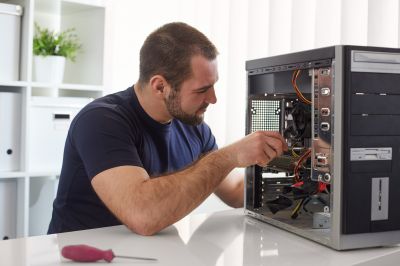Optimal Timing for Windows Installations
Scheduling Windows installations at appropriate times can ensure minimal disruption and optimal performance. Understanding the optimal periods for setup can lead to smoother transitions and better system stability.
Spring and fall are generally ideal times due to moderate temperatures and fewer technical disruptions.
Timing installations during low business activity periods reduces operational impact and downtime.
Avoid extreme weather seasons to prevent delays caused by adverse conditions affecting hardware or personnel availability.
Perform installations when new updates or hardware compatibility improvements are available to ensure longevity.

A technician setting up a Windows system in an office environment.

Preparing hardware for Windows deployment in a data center.

Close-up of a technician working on a computer during installation.

Configuring network settings for Windows systems in an office.

Assessing hardware components before Windows installation.

Employees receiving training on new Windows features.

Backing up important data prior to Windows setup.

Verifying system stability after Windows setup.

Support staff assisting with Windows system configurations.
| Consideration | Details |
|---|---|
| Seasonal Weather | Avoid installation during extreme heat or cold to prevent hardware issues. |
| Business Operations | Schedule during low activity periods to reduce operational disruptions. |
| Hardware Availability | Ensure hardware components are available and compatible before scheduling. |
| Update Releases | Coordinate with software updates to optimize system performance. |
| Staff Availability | Plan installations when technical staff are fully available and prepared. |
| Client Deadlines | Align installation timelines with project or client deadlines. |
| System Readiness | Verify all pre-installation requirements are met for a smooth setup. |
| Maintenance Windows | Utilize scheduled maintenance periods for less impact. |
Windows installations are a critical aspect of maintaining up-to-date and secure computer systems. Proper timing can enhance efficiency, reduce downtime, and ensure compatibility with the latest updates. It is recommended to plan installations during periods of low operational demand and favorable weather conditions. This approach minimizes potential disruptions and allows for thorough testing and configuration. Regular updates and hardware assessments contribute to system stability and longevity, making timing a key factor in successful Windows deployment.

Technician installing Windows on a desktop computer.

Prepping hardware components before Windows installation.

Configuring network and security settings post-installation.

Setting up user profiles and permissions for Windows.
Interested in scheduling a Windows installation or learning more about the process? Filling out the contact form can provide tailored information and assistance to ensure a seamless setup that meets specific operational needs.



